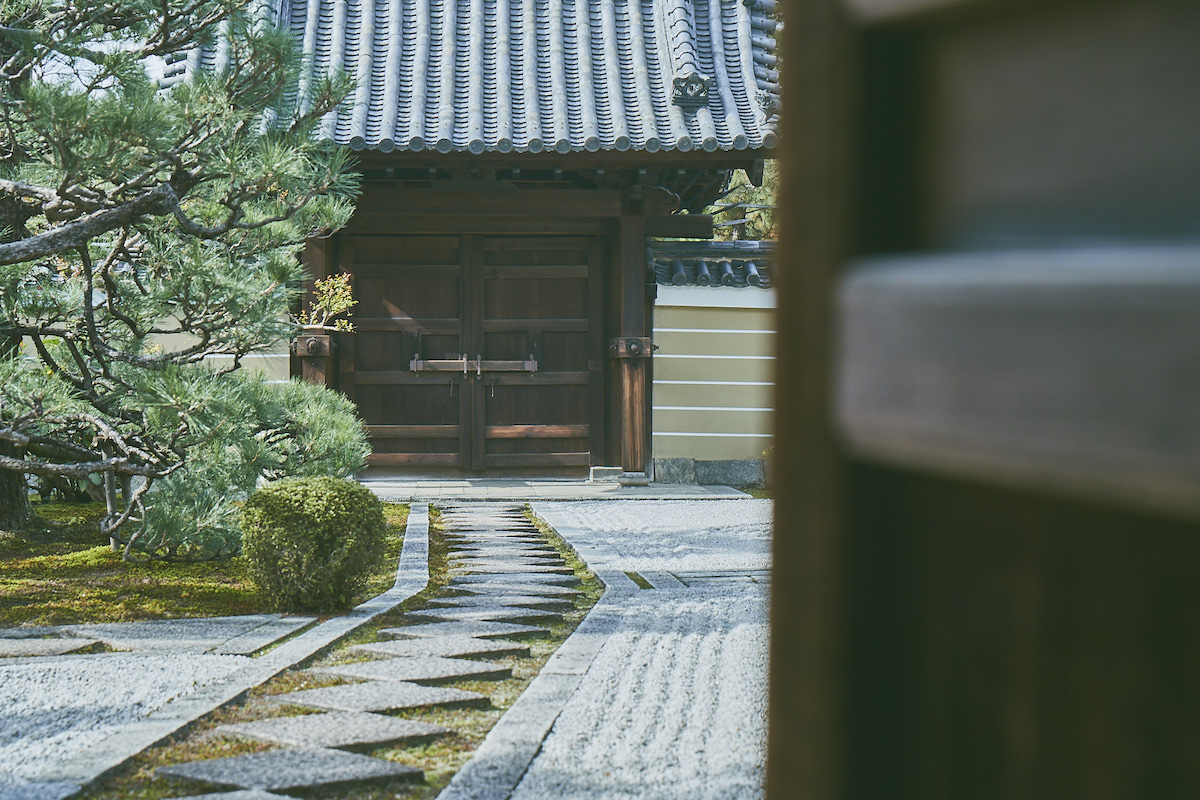Being Helped Without Sacrificing Individual Artistry: Terakoya Radio Broadcast #1
Good morning. I am Ito Toryou. I teach zazen and meditation, organize art projects, and run In-trip, an app to regulate the mind. Today, I would like to commence our Terakoya Radio broadcast in front of the Ryosokuin garden.

Today’s theme is:How to rely on other people?
First, let me pose a question. Are you good at seeking help?
To rephrase the question, which is more comfortable for you: relying on someone or being relied upon?
Both are indispensable. We need to both depend on and be depended on. Our relationships are founded on personal and mutual connections. If you lean too heavily on others, you may become overly reliant on them, and if they rely on you excessively, they may become burdensome.
Today, I’d like to discuss not the techniques for mastering the art of seeking help.
I want to explore two stages: asking for help and being true to oneself.
The initial stage involves a trade-off between adhering to your commitments and seeking assistance from others. For instance, when you undertake something independently, such as cooking and managing household chores, you can invest your complete attention in the task. By overseeing the entire process, you can add a personal touch, making the outcome truly original.
However, when seeking help from others, it’s not quite the same. As mentioned earlier, it’s a trade-off relationship. The more you rely on others, the less you are able to be in total control of the outcome. With this in mind, I find myself increasingly open to collaboration. Yet, as we do so, our individual commitment to a project may start to wane, and we may question the purpose and direction of our efforts.

The second stage involves acknowledging that, in reality, this is not a negative development. Initially, we must accept that our personal role is less without compromising the quality of our work. People skilled in cooking may resonate with this – if you merely chop away without a delicate touch, the quality may suffer slightly. Entrusting some of the creative work to someone else might result in a slightly different dish, but one that still holds its own charm.
We must embrace the parts we delegate, including the possibility of errors. Accepting these errors, that may not have occurred if working solo, provides a new perspective. While your total control over the work may lessen, a new element of originality is added. This is where personal growth occurs. How you accept these changes and interpret them truly reveals your personality.
It’s not about everyone interpreting it the same way; instead, it’s about saying, “Well, it turned out this way, so I adjusted it like this,” or “It didn’t go as planned, but I made a tweak at the end,” or “I thought it was good and said so, and it turned out fine, but I missed the mark.”
Working with others in new ways contributes to a genuine sense of originality. Working alone may lead to being confined by habits or patterns, making it challenging to introduce changes.
If you dare to explore the first stage, the second stage allows you to be uniquely yourself without losing your individuality. Don’t fear becoming reliant on others from the start; the key is not getting overly fixated on the idea of doing everything on your own.
Once you seek help, you create space to contemplate what to insert into the void that is left. This may prompt you to approach your role in a collaboration with heightened awareness or to use free time to explore and refresh your mind, leading to novel ideas. Moreover, positive effects, such as increased kindness towards others, may emerge when you seek help without overthinking it.
This, I believe, is the crux of today’s discussion: seeking help does not mean losing your uniqueness.